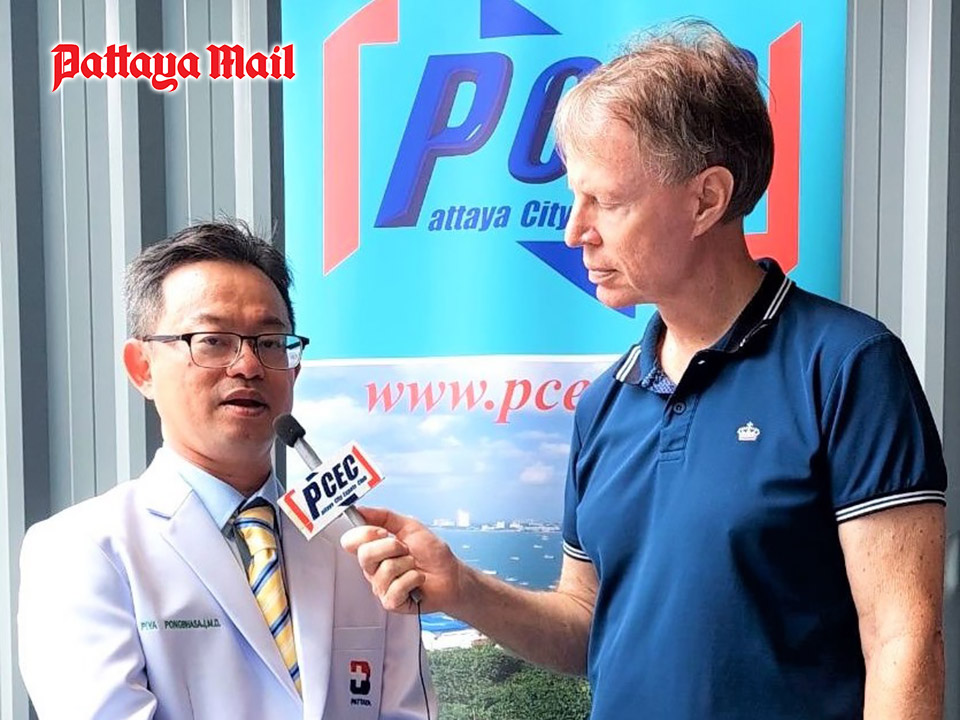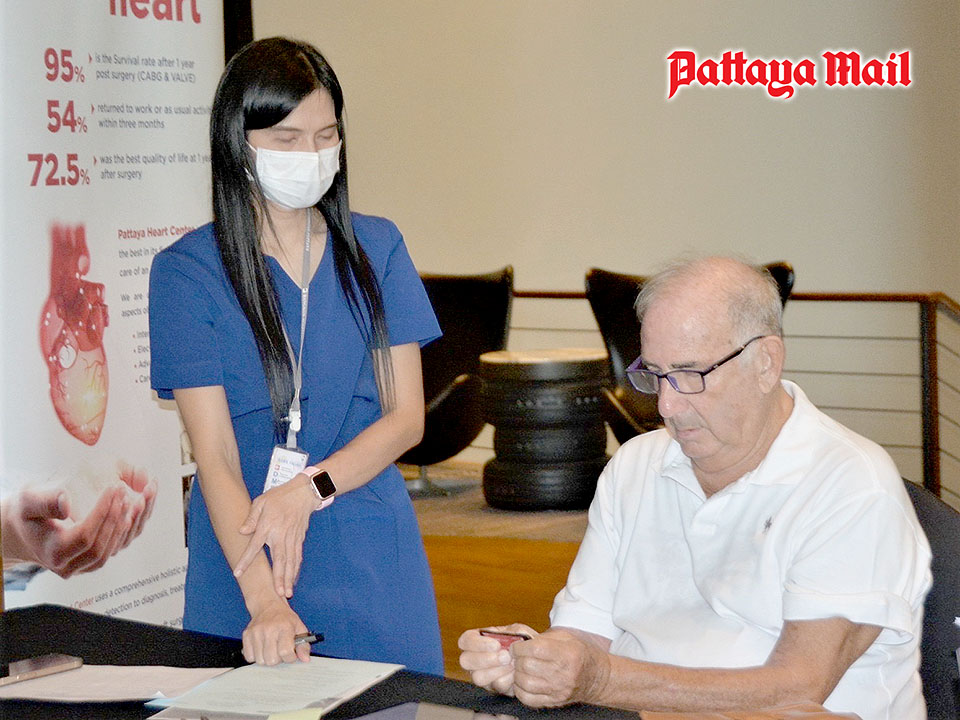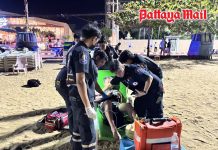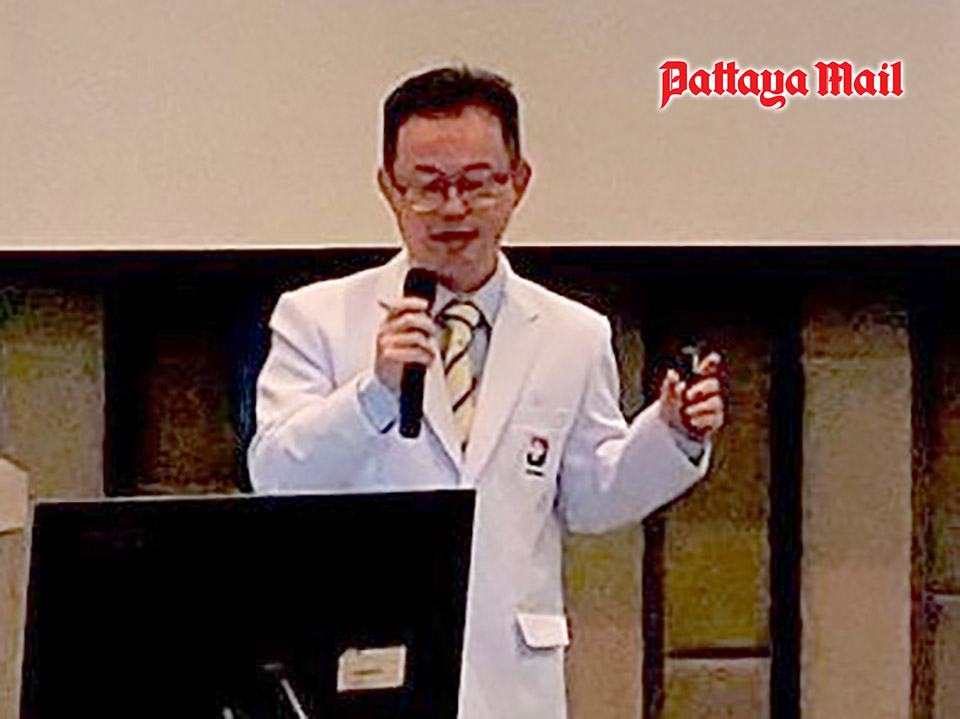
At their May 17 meeting, the Pattaya City Expats Club welcomed Dr. Piya Pongbhaesaj, MD, Cardiac Electrophysiologist at Bangkok Hospital Pattaya (BHP). He gave a very comprehensive talk on the topic “Can we live with Arrhythmia and what to do about it?” He was accompanied by Wallapha (Tanya) Sawasdikool, from BHP’s International Marketing Department and several BHP staff members who provided free screening tests for those attending the meeting.
Using PowerPoint slides, Dr Piya explained what cardiac arrhythmia is, its seriousness, type, causes, risk factors, diagnosis, and treatment. First, he explained that an arrhythmia is a problem with the rate or rhythm of your heartbeat which may beat too quickly, too slowly, or with an irregular rhythm. He noted that it can be harmless or cause palpitation, fainting, stroke, or cardiac arrest. Further, it may be silent as there may be no symptoms. He mentioned that the types of cardiac arrhythmia are Tachycardia (fast heartbeat), Bradycardia (slow heartbeat), and Premature (extra heartbeats).
There are many causes for cardiac arrhythmia including being genetic, high blood pressure, cardiomyopathy (heart muscle disease), valvular heart disease, coronary artery disease, and electrolytes imbalance. It can also be the result of previous heart attack/surgery, or from medications. Dr Piya listed the following as the risk factors: smoking, alcohol, caffeine, stimulants such as cold medicines or herbal supplements, high blood pressure, obesity, high blood sugar, and sleep apnea.
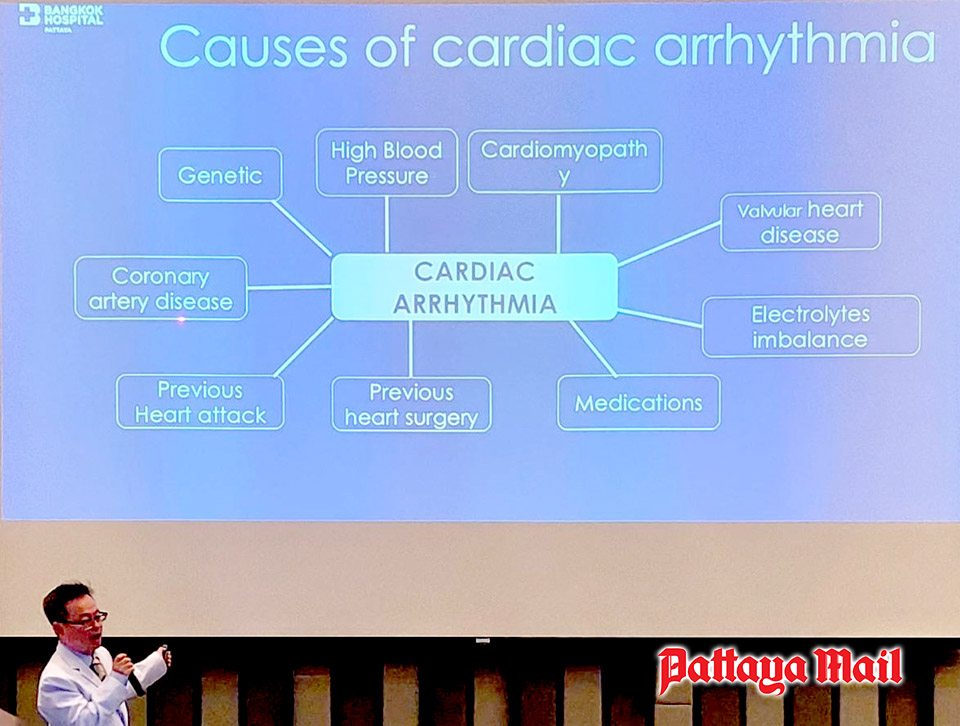
For diagnosis, the simplest method is to check your pulse for an irregular heartbeat. The next is an electrocardiogram (ECG/EKG) to measure the heart’s electrical activity. More sophisticated methods include Ambulatory Monitors (Holter monitor is a battery-operated portable device or Implantable loop recorder under the skin), Exercise Stress Test (EST) to provide information about how the heart responds to exertion, and Electrophysiology (cardiac mapping) done to find out why your heart isn’t beating in a regular way.
Dr Piya described the various treatment methods which involve lifestyle changes, medication, rhythm control therapies, devices, or surgery. He recommended lifestyle changes such as controlling blood pressure and blood sugar levels, stopping smoking, limiting alcohol intake, and avoiding caffeine and stimulants. He mentioned medications can be antiarrhythmic drugs, rate control medications, and anticoagulant (to prevent stroke). He also described rhythm control therapies such as electrical cardioversion, catheter ablation, and pulmonary vein isolation as well as use of devices such as a permanent pacemaker or implantable cardioverter defibrillator.
Surgery procedures that can be necessary are Coronary Artery Bypass Grafting, Heart Valve Repair and Replacement, or a MAZE operation where a surgeon creates a pattern (maze) of scar tissue in the upper chambers of the heart to control electrical activity (scar tissue doesn’t conduct electricity so the maze interferes with stray electrical heart signals that cause atrial fibrillation).
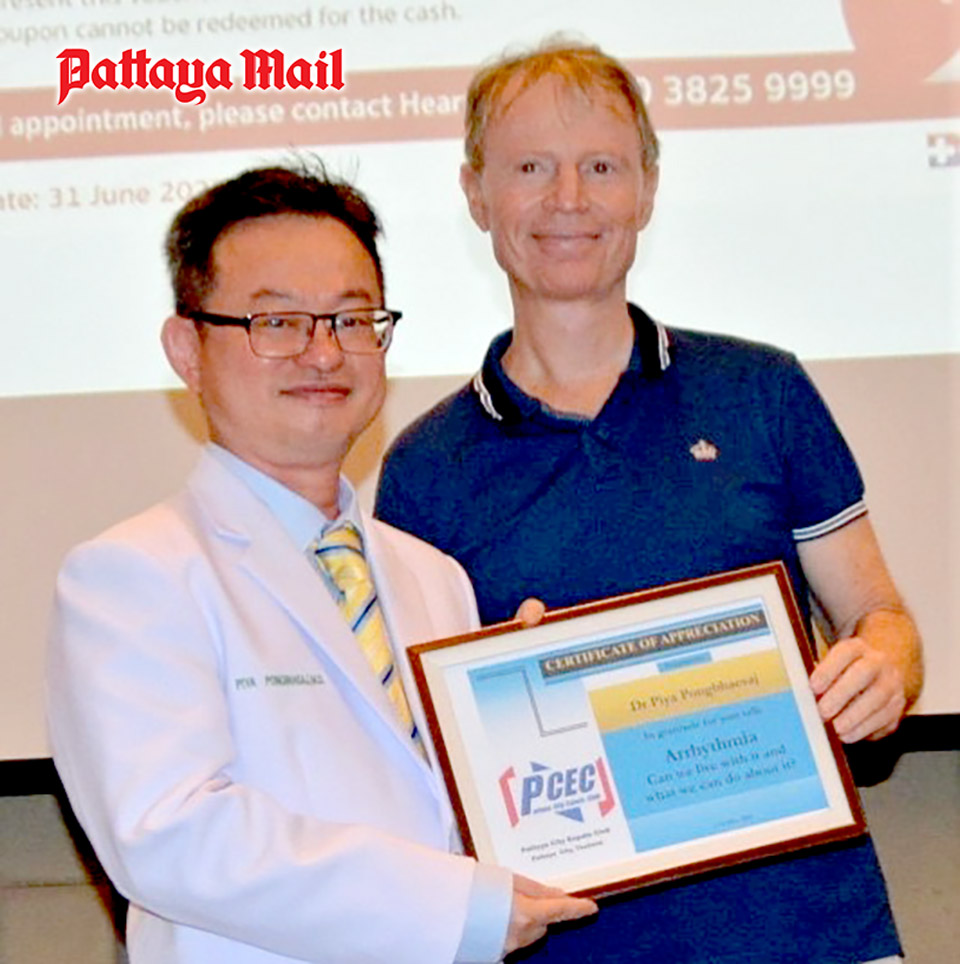
To view Dr Piya’s presentation, visit the PCEC’s YouTube Channel at https://www.youtube.com/watch?v=nO7H1NFzW1o. Following Dr Piya’s interesting and informative presentation, Tanya Sawasdikool conducted a lucky draw awarding BHP vouchers valued at 1,999 baht each for free screening tests at BHP. Five vouchers were for Electrocardiogram and Echocardiogram screening and Seven vouchers were for Electrocardiogram and Exercise Stress Test screening.
Following the Lucky Draws, MC Ren Lexander called on George Wilson to conduct the Open Forum portion of the meeting, where questions are asked or comments made about Expat living in Pattaya and Thailand. To learn more about the PCEC, visit their website at: https://www.pcec.club.
